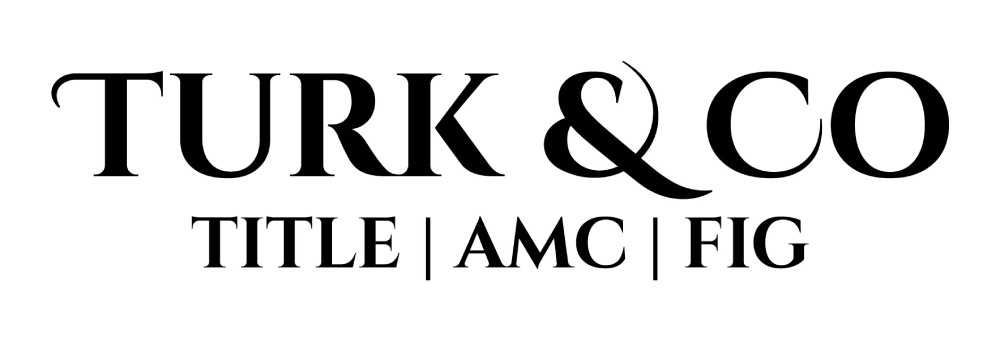How Do Title Agencies Decide Whether It’s Worth Entering the M&A Market?
Several businesses in the title industry, agencies as well as other related firms, have had an incredibly profitable run over the past two years. This has resulted in many finding themselves flush with cash. It has also, as a more competitive purchase market emerges, driven some owners to ask, “Is it time to cash in on my hard work building my business?” For others, perhaps the time is now to grow their market footprints through acquisition.
The knee-jerk reaction, coming off one of the strongest years the industry has ever experienced, might be something along the lines of “If not now, when?” However, that’s a gut feeling. The mergers and acquisitions (M&A) market is much more sophisticated. Timing is not always directly correlated to national volume or performance.
Whether a title agency intends to enter as a buyer or seller, the M&A market can be incredibly complex for unique, privately held businesses. There is no universal market for title agents, and the value of a title business can be affected by a wide number of disparate factors.
The business mix of residential volume to commercial and/or REO/default volume matters. The proportion of top-line revenue attributed to residential refinances matters (unless you have robust integrations). Corporate concentration issues matter. Even the geographic footprint of a title business can make all the difference in valuation. After all, this is not truly a national marketplace, but an aggregation of many local markets.
Most people looking to buy or sell a valuable item like a house have the luxury of adequate and often free information to inform their decision. When buying or selling, it takes two clicks on the internet to find mountains of information offering to help them put a reasonably accurate number on the property in question. It’s also easy to find professionals (such as real estate agents) willing to help the buyer or seller in that regard.
That’s not really the case for the owner of a title-related business asking, “What is my business worth in this market?” The same is true for someone thinking about becoming a buyer in the same market. How much will it truly cost to acquire another firm?
Accurately answering those questions is a real challenge, especially because so many variables go into determining an accurate number. A professional valuation is a good option, but it’s critical to find the right firm. The number of valuation professionals with an extensive understanding of our unique title industry is fairly limited. Many larger firms that cover numerous industries claim to cover the title industry as well. However, as is the case with other “one- size-fits-all” services, few of them have extensive or specific experience with the title insurance industry.
Firms unfamiliar with the settlement services world can struggle to get an accurate understanding of how private equity firms might vary from strategic buyers when it comes to evaluating the multiple factors that come with putting a price on a title business. That can result in a significant variance when the time actually comes to buy or sell. And while the preliminary report those firms issue
will certainly be an investment in and of itself, the accuracy when tested in the market may be less than advertised. For even a title agency flush with cash, frivolous spending is never an option.
When evaluating a title agency or similar title-related business, there are many factors involved beyond a basic P&L analysis. These include things like current market conditions, past performance, market potential, existing (and hidden) debt, assets, the ease (or difficulty) of integration between the two businesses post-merger or acquisition, and the sustainability of the business model.
Do not make the mistake too many owners have made time and time again. Don’t try to simply do an apples-to-apples comparison of your business to what you consider a competitor or similar firm. Odds are it’s not a true across-the-board comparison—not without a thorough knowledge of the most private details of that business and a clear understanding of what potential buyers and sellers are seeking in your market. Too many of these kinds of assumptions end up missing what the owner considers an innocuous detail, which may have tremendous importance in the actual market. The result can be disastrous.
After spending a lifetime building your business up to its peak value, wouldn’t it be a shame to settle for far less than its true value because you weren’t willing to put that same effort into discovering what it’s actually worth?
For the title agent or owner seriously considering M&A activity, there aren’t a lot of off-the-shelf options. There’s no Zillow for title businesses, no true value calculator on some free website. However, the route all too many firms take—winging it—is never a good choice either. Thus, for any serious owner, an experienced professional firm should be consulted. Some even offer affordable market “snapshots” that give the business a good idea of what his or her agency (or target agency for buyers) is likely worth without costing an arm and a leg.
The key, however, is finding a consultant or firm that truly understands the industry and the buyer’s or seller’s market. When evaluating an M&A firm or consultant, be sure to ask them questions such as, “How many title businesses have you sold? Have you ever run a title business yourself? How recently have you consulted on a sale? What are the factors unique to my market? What are strategic buyers and/ or private equity firms looking for when evaluating a title business?” And of course, request testimonials. Ask for and talk to references and previous clients. As Albert Einstein said, “The only source of knowledge is experience.”
Almost anyone can deliver a hypothesis as to the value of your firm. But nothing beats a consultant or firm with extensive experience marketing and selling firms much like your own. The counseling you seek as you set about your M&A journey should be informed by experience as well as expertise. Do they understand the nuances and intricacies of the title industry? Do they know the agent/underwriter splits? Have they marketed and sold a large number of agencies for top dollar? In the past, the easy solution for an agent seeking to sell was to simply approach his or her underwriter. That’s not necessarily the best road to maximizing value anymore, as private equity firms and financial buyers begin to stake their claim in the market.
Keep in mind, too, that getting professional assistance when it comes to M&A should involve more than an answer to the valuation question. An experienced professional can also help a business owner decide if, indeed, now is the right time to buy or sell.
The way the M&A game is played in the title industry today is quickly changing from what it used to be. For example, we are starting to see variation in the multiples and clear patterns as to when an underwriter is the right buyer and when they are not. Many times, that variation depends on the size of the business. However, the increments at which the multiples increase are not always uniform. Your advisor should be able to quickly understand where your agency fits into that pattern.
It may also be the case that the value of your agency or business could be increased dramatically by making a small investment or two and waiting for a year or so—a difference that could amount to thousands or more. Perhaps you need to make a simple adjustment like adding an outsourcer to parts of your process. However, far too many title business owners who have worked so hard to find success, end up making that decision based upon little more than a gut reaction, which usually costs them.
In the end, your decision to buy or sell should be based upon solid information and an expertise in properly applying that information. While the value of your business (or of the business you may be targeting for acquisition) is at the core of your decision, the market’s conditions are almost as important. Just like a home, your business is only worth what someone in your market will pay for it. Unlike the resources available for selling a house, however, there is no library of information about title agency valuation.
Selling or buying another business is a serious matter. The general rule of thumb for M&A transactions in all industries is that 40% will never close. But many of the 60% that do close aren’t at optimal value for the seller. A bad acquisition could become costly or, even worse, sink your entire brand if you enter the transaction without a solid idea of what’s in store for you.
After spending a lifetime building your business up to its peak value, wouldn’t it be a shame to settle for far less than its true value because you weren’t willing to put that same effort into discovering what it’s actually worth?






















 For More information
For More information